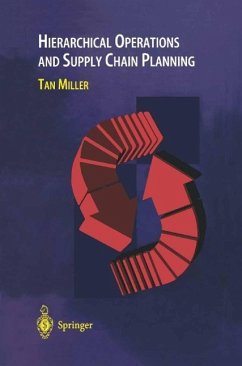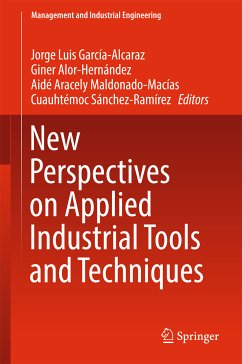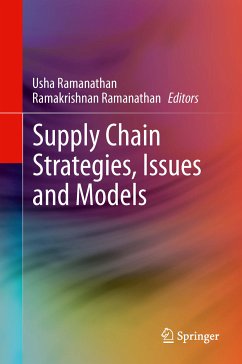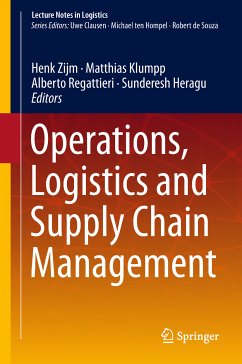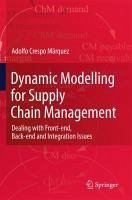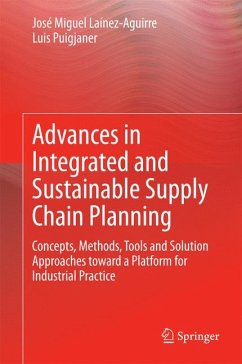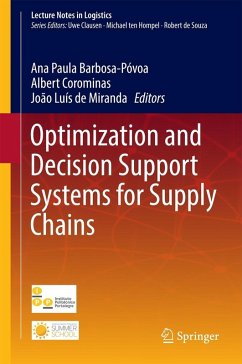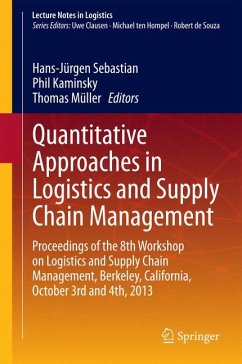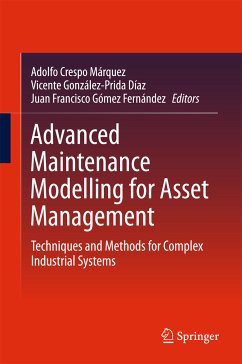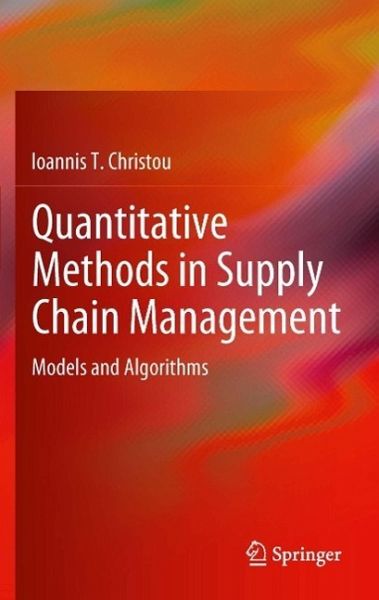
Quantitative Methods in Supply Chain Management (eBook, PDF)
Models and Algorithms
Versandkostenfrei!
Sofort per Download lieferbar
112,95 €
inkl. MwSt.
Weitere Ausgaben:

PAYBACK Punkte
56 °P sammeln!
Quantitative Methods in Supply Chain Management presents some of the most important methods and tools available for modeling and solving problems arising in the context of supply chain management. In the context of this book, "solving problems" usually means designing efficient algorithms for obtaining high-quality solutions.The first chapter is an extensive optimization review covering continuous unconstrained and constrained linear and nonlinear optimization algorithms, as well as dynamic programming and discrete optimization exact methods and heuristics. The second chapter presents time-ser...
Quantitative Methods in Supply Chain Management presents some of the most important methods and tools available for modeling and solving problems arising in the context of supply chain management. In the context of this book, "solving problems" usually means designing efficient algorithms for obtaining high-quality solutions.
The first chapter is an extensive optimization review covering continuous unconstrained and constrained linear and nonlinear optimization algorithms, as well as dynamic programming and discrete optimization exact methods and heuristics. The second chapter presents time-series forecasting methods together with prediction market techniques for demand forecasting of new products and services. The third chapter details models and algorithms for planning and scheduling with an emphasis on production planning and personnel scheduling. The fourth chapter presents deterministic and stochastic models for inventory control with a detailed analysis on periodic review systems and algorithmic development for optimal control of such systems. The fifth chapter discusses models and algorithms for location/allocation problems arising in supply chain management, and transportation problems arising in distribution management in particular, such as the vehicle routing problem and others. The sixth and final chapter presents a short list of new trends in supply chain management with a discussion of the related challenges that each new trend might bring along in the immediate to near future.
Overall, Quantitative Methods in Supply Chain Management may be of particular interest to students and researchers in the fields of supply chain management, operations management, operations research, industrial engineering, and computer science.
The first chapter is an extensive optimization review covering continuous unconstrained and constrained linear and nonlinear optimization algorithms, as well as dynamic programming and discrete optimization exact methods and heuristics. The second chapter presents time-series forecasting methods together with prediction market techniques for demand forecasting of new products and services. The third chapter details models and algorithms for planning and scheduling with an emphasis on production planning and personnel scheduling. The fourth chapter presents deterministic and stochastic models for inventory control with a detailed analysis on periodic review systems and algorithmic development for optimal control of such systems. The fifth chapter discusses models and algorithms for location/allocation problems arising in supply chain management, and transportation problems arising in distribution management in particular, such as the vehicle routing problem and others. The sixth and final chapter presents a short list of new trends in supply chain management with a discussion of the related challenges that each new trend might bring along in the immediate to near future.
Overall, Quantitative Methods in Supply Chain Management may be of particular interest to students and researchers in the fields of supply chain management, operations management, operations research, industrial engineering, and computer science.
Dieser Download kann aus rechtlichen Gründen nur mit Rechnungsadresse in A, B, BG, CY, CZ, D, DK, EW, E, FIN, F, GR, HR, H, IRL, I, LT, L, LR, M, NL, PL, P, R, S, SLO, SK ausgeliefert werden.




